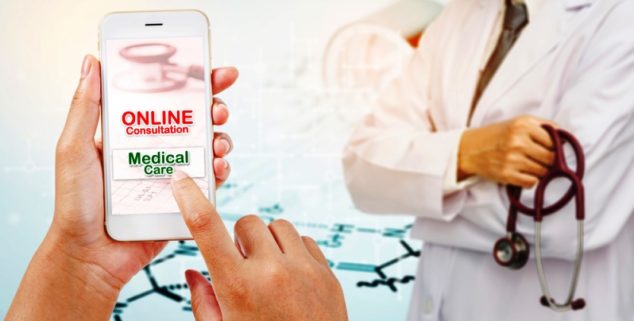Opinion
Teledentistry of key importance during pandemic
 Photo illustration of using online communication to address health issues. (Photo: PENpics Studio, via Shutterstock)
Photo illustration of using online communication to address health issues. (Photo: PENpics Studio, via Shutterstock)Telehealth is quickly becoming the new norm as the nation fights the COVID-19 pandemic. Thanks to innovative telemedicine technology, medical professionals are able to treat patients without having to travel to the doctor’s office which reduces costs, saves time, reduces pressure on the healthcare system and helps stop the COVID-19 spread.
During this unprecedented time, people will still contract the common cold, get ear infections, get a tooth ache or need to continue orthodontic treatment, and thus require non-urgent medical attention. While it’s crucial for the majority of our medical professionals to be focused on the current health crisis, it is telehealth initiatives that can bridge the gap in care for non-urgent medical needs.
Teledentistry has the ability to bring expert dental care to people that aren’t able to afford or access traditional care.
Amongst these telehealth initiatives is the emergence of teledentistry, which is the use of electronic communication such as interactive audio, video, data communications as well as store and forward technologies, to provide and support dental care delivery, diagnosis, consultation, treatment and transfer of dental information.
The teledentistry industry is growing rapidly as the need for accessible dental care increases.
Teledentistry has the ability to bring expert dental care to people that aren’t able to afford or access traditional care. For example, SmileDirectClub is a company that offers affordable, accessible clear aligner therapy for people across the country connecting them with licensed dentists and orthodontists via technology platforms. These services are allowing more people than ever before to be able to afford and access straightening their teeth. It is more flexible, convenient and less time-consuming than a more traditional model which involves taking time off work, school or away from home to travel to and from the dentist office.
Unfortunately, before our current health crisis, there were some traditional dental trade groups that peddled misinformation about teledentistry and specifically teeth straightening technologies. This was an effort to stop progress in order to preserve market share and pricing controls using the old model.
In fact, there is even legislation pending today – Assembly Bill 1998 by Assemblymember Evan Low — that would require an in-person visit to a dentist before an individual could access teeth straightening telehealth services. All 50 states do not require this type of visit for physicians practicing telemedicine. Teledentistry is no different than telemedicine and AB 1998 is counter to the standard of care in telehealth.
We are asking policymakers to expand the use of telehealth for all health and dental care needs. It is estimated that 37 million people in America have no dental insurance coverage which has resulted in approximately 42% of the population not routinely seeing a dentist. Access to dental care is a real crisis. Our current state of emergency has only exacerbated the problem.
A recent survey found that 78% of patients are likely to use virtual dental care in the next five years. This is likely to only increase. It is now, more than ever, that we must embrace innovations that will propel us forward and not hold us back. Teledentistry is not just a convenience but a necessity.
We urge our elected leaders to oppose any proposal that discourages this progress and access to care. A widespread shift to telehealth will increase the accessibility of dental care to all Californians, and create a sustainable, more affordable and efficient model for dental care even when the crisis is over.
It’s dentistry’s ethical and professional obligation to make sure that in this time of great anxiety, Californians can rest assured that America’s dental leadership is considering every means at its disposal to provide dental care to those in need without exposing them to unnecessary risks and expense.
—
Ed’s Note: Dr. Marc Ackerman is executive director of the American Teledentistry Association.
Want to see more stories like this? Sign up for The Roundup, the free daily newsletter about California politics from the editors of Capitol Weekly. Stay up to date on the news you need to know.
Sign up below, then look for a confirmation email in your inbox.

Leave a Reply